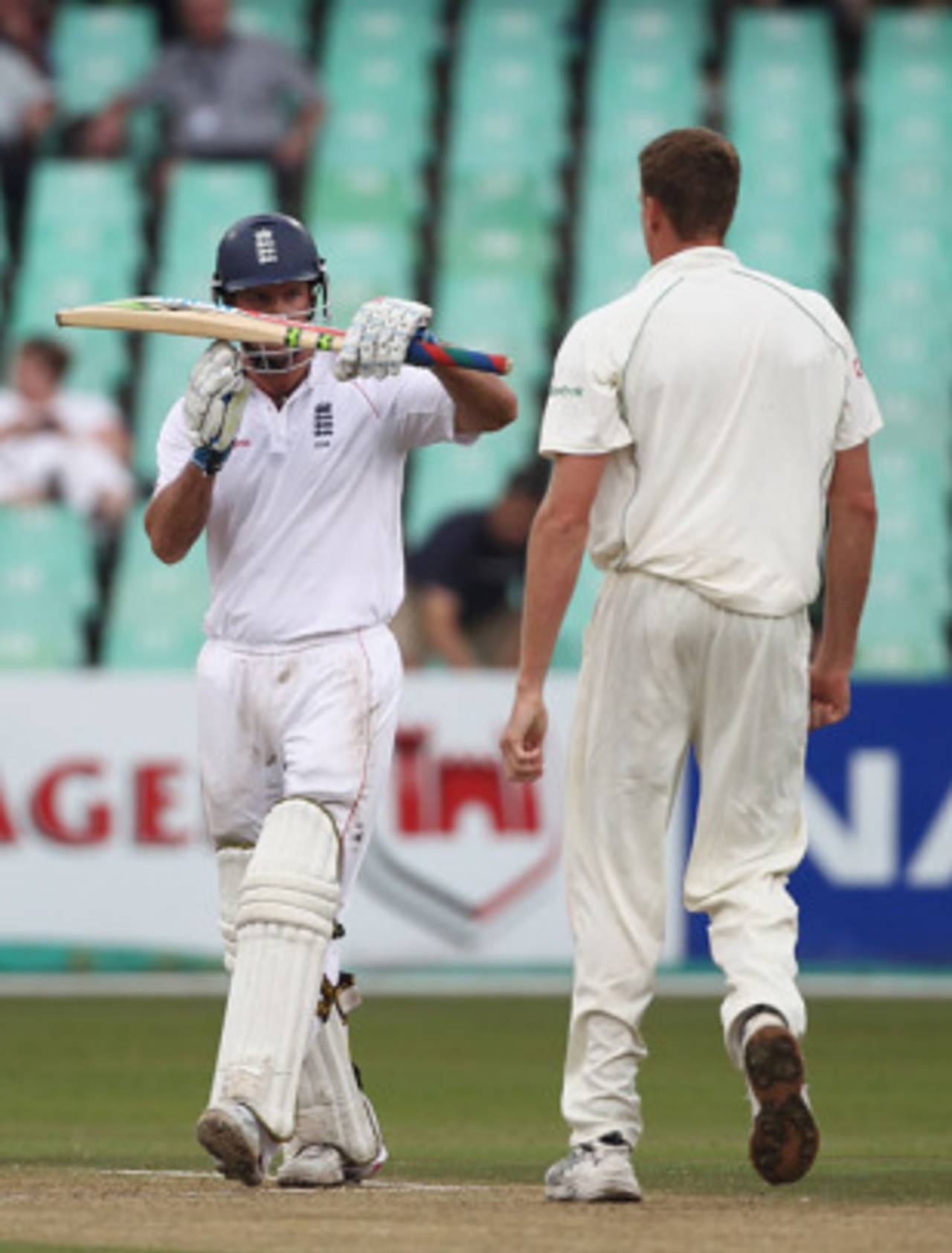BCCI officials to scrutinise UDRS during Ashes
A close-in view of the UDRS during the Ashes this year may finally convince the BCCI to change its stance over using the technology that allows players to question and reverse dismissals
Sharda Ugra
13-Oct-2010

The UDRS is known to increase the percentage of correct decision-making from 92% to around 97% • Getty Images
A close-in view of the Umpire Decision Review System (UDRS) during the Ashes this year may finally convince the BCCI to change its stance over using the technology that allows players to question and reverse dismissals. Board officials, accompanied by ICC CEO Haroon Lorgat, will travel to Australia to watch the use of the system during the upcoming Ashes series.
After the ICC's Board meeting this week, Lorgat said he "had agreed with Cricket Australia to attend the Ashes matches ... with representatives of the BCCI, to understand the successful application of the technology and its contribution to correct umpiring decisions."
The entire exercise is meant to serve as a test run for the UDRS at the 2011 ICC World Cup - the ICC said India, Sri Lanka and Bangladesh, the three World Cup hosts, had confirmed that the system would be used at the tournament subject to the "reliability" of ball-tracking technology. The Hot Spot technology, which uses expensive thermal imaging cameras, would be used in the semi-finals and final only.
The ICC executive Board also announced that it would try to find sponsors for the UDRS to cover its high cost. Member nations could either pool their UDRS sponsorship rights with the ICC, and so earn sponsorship revenues after deducting costs, or try to find independent sponsors themselves.
The ICC would ideally like the Ashes inspection to lead to the BCCI finally accepting UDRS for India's series. "We certainly hope so. There is so much agreement about the UDRS among other members and hopefully India feels it is time to look at it seriously again," said an official. The BCCI officials heading for the Ashes to give the system a thorough once-over could be chosen from a select group, with one among BCCI secretary N Srinivasan, operations in-charge Suru Nayak and the board's chief administrative officer Ratnakar Shetty most probably being on the visit.
An ICC official admitted that the ball-tracking technology was "not 100% secure" but added that, "we have built in margins of error in the system. To overturn a decision, the third umpire would have to have a high degree of confidence." There is also the likelihood of the Ashes television coverage using a slightly improved version of its ball-tracker technology as well as the Hot Spot. These are meant to be the two arguments which, the ICC are hopeful, will eventually change the BCCI's mind.
ESPNcricinfo has learnt that during the India-Australia Test series, there have been discussions between players, particularly the two captains, and officials, about the UDRS and the ball-tracking technology currently being used. Controversial decisions, against Gautam Gambhir, Ishant Sharma and Michael Hussey, during the Mohali Test certainly proved that the UDRS was missed at critical junctures.
India's doubts over the UDRS rest mostly on Hawkeye's accuracy in the assumption of heights. The use of vector graphics for 'projectile mapping' - predicting the course of the ball - does not, its critics believe, take into account the variety of wicket conditions which changed daily.
The ICC hopes that the next few months could be a 'turning point' for the UDRS. It maintains that studies have proved that the DRS system increases the percentage of correct decision-making from 92% to around 97%.
A superior ball-tracker and a resolution over the Hot Spot cost issue could however lead to the system being used in India next season. That is, if the BCCI wants to find a way to squeeze in a home series in 2011, as the year is dominated by away tours for the Indian team.
Sharda Ugra is senior editor at Cricinfo